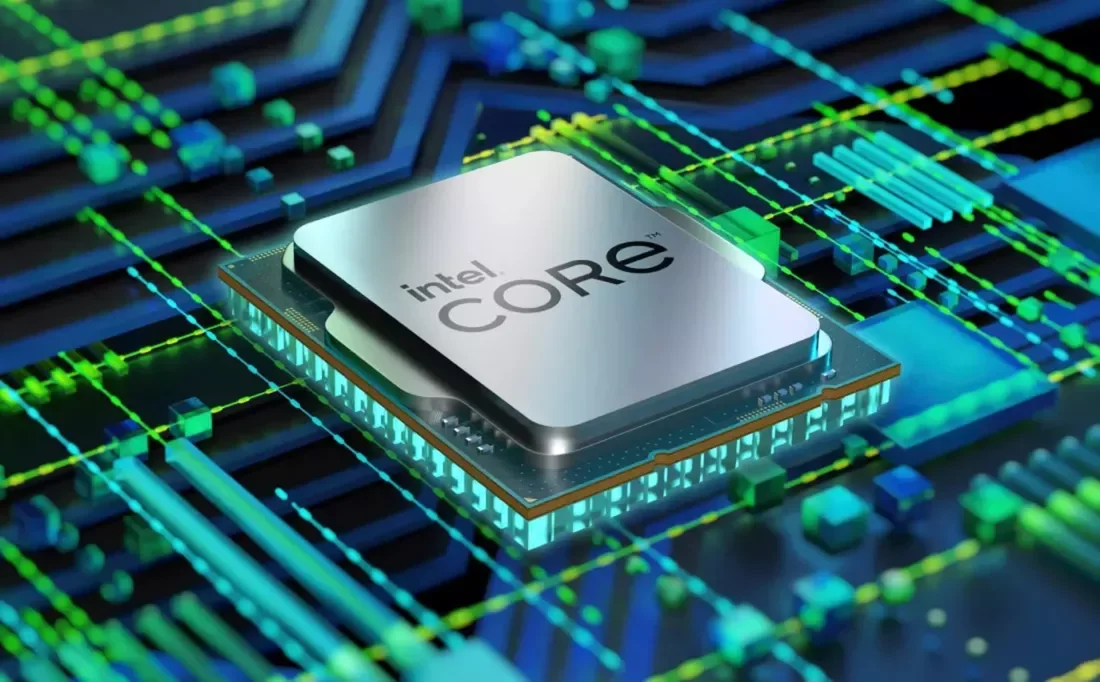The Intel CPU crisis is heating up! What started as a problem for high-end chips has morphed into a full-blown headache for the tech giant. With more and more CPUs affected by sudden crashes, users are left in the lurch. As Intel scrambles to find a solution, questions about the company’s quality control and customer support are growing louder. Will this scandal ruin Intel’s reputation irreparably?
Intel CPU Crashing Issues Expand
Initially, Intel pinpointed the problem to its 13th and 14th generation CPUs, specifically the high-performance K, KF, and KS variants. However, it has now become apparent that the issue extends to a broader range of models, including the mainstream 65W and higher CPUs. This revelation underscores the severity of the problem and raises concerns about the underlying cause.
The root of the issue appears to be linked to erroneous microcode that instructs the CPU to request excessive voltage, leading to potential hardware damage. While Intel has identified this as a primary factor, it has also acknowledged the existence of other contributing causes, complicating the search for a permanent solution.
Intel’s Response Under Fire
Intel’s handling of the crisis has drawn criticism from consumers and industry experts alike. The company has faced backlash for its lack of transparency, delayed response, and limited support for affected customers. While Intel has promised a microcode update to address the issue, it has also admitted that the patch may not resolve problems for CPUs that have already suffered damage.
The company’s decision to avoid a recall or extended warranties has further exacerbated the situation, leaving customers to bear the financial burden of replacing faulty processors. This lack of accountability has eroded consumer trust in the brand.
- Impact on Consumers and the Industry
The Intel CPU crisis has had a significant impact on consumers and the tech industry as a whole. Users who have experienced CPU failures have faced inconvenience, financial loss, and uncertainty about the future reliability of their systems.
The broader implications for the industry are also concerning. The incident highlights the potential risks associated with complex semiconductor manufacturing processes and the importance of rigorous quality control. If not addressed effectively, the crisis could damage Intel’s reputation and erode consumer confidence in its products.
- Potential Causes and Solutions
While Intel has identified erroneous microcode as a primary cause of the CPU crashes, the underlying factors contributing to this issue remain unclear. Several theories have been proposed, including manufacturing defects, design flaws, and external factors such as power supply instability.
Read Also: Avengers 5 and 6 Retitled: Russo Brothers Return for Epic Finale
To prevent similar incidents in the future, Intel must conduct a thorough investigation to identify all contributing factors and implement comprehensive measures to address the root causes. This includes improving quality control processes, enhancing testing procedures, and investing in advanced manufacturing technologies.
- Future Implications for Intel
The Intel CPU crisis serves as a wake-up call for the company. To regain consumer trust and maintain its market position, Intel must prioritize transparency, accountability, and customer support. A swift and effective response to the crisis is essential for mitigating long-term damage to the brand.
Additionally, Intel should invest in research and development to enhance its CPU design and manufacturing processes. By focusing on innovation and quality, the company can rebuild its reputation and regain the trust of consumers and the industry.
The CPU crisis underscores the critical importance of robust quality control and risk management in the semiconductor industry. As technology continues to advance, companies must stay ahead of emerging challenges to ensure the reliability and performance of their products.
FAQs
What Intel CPU models are affected by the crashing issue?
Initially, the problem was reported in Intel’s 13th and 14th generation high-performance K, KF, and KS variants. However, it has now been discovered that the issue also affects mainstream 65W and higher CPUs, expanding the scope of the crisis.
What is causing Intel CPUs to crash?
Intel has identified erroneous microcode as a primary cause, which leads to excessive voltage requests and potential hardware damage. However, additional factors, including design flaws, manufacturing defects, and power supply instability, may also contribute to the problem.
How is Intel addressing the issue?
Intel has announced a microcode update to mitigate the problem, but it may not resolve issues for already damaged CPUs. The company has faced criticism for its slow response, lack of transparency, and refusal to offer recalls or extended warranties for affected users.
Conclusion
The Intel CPU crisis highlights critical issues in quality control and customer support within the semiconductor industry. With more CPUs affected than initially thought, Intel must take decisive action to restore consumer trust. Moving forward, the company needs to improve transparency, refine its manufacturing processes, and prioritize customer support to prevent similar crises in the future.
